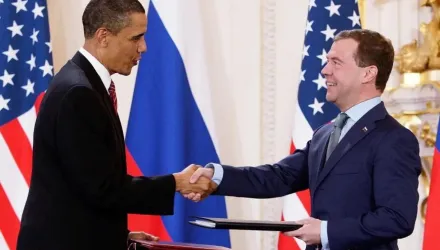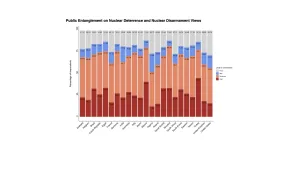ABSTRACT
Why do states join multilateral nuclear arms control, nonproliferation, and disarmament treaties that limit their military capabilities? If the world is to eventually move beyond nuclear deterrence, this question is of pivotal importance for scholars and policymakers alike. Legally forswearing nuclear weapons and associated activities carries costs for all states, given the long-term unpredictability of the global security environment. Yet, doing so is far more common than not among nations. Understanding why states opt to tie their hands vis-à-vis the bomb is therefore essential for optimizing nuclear diplomacy negotiations and designing effective treaties. In this chapter, the author provides a summary of the current state of the literature regarding this topic. He identifies five “camps” of scholarly explanations underlying the phenomenon. They point to national security, international pressure, global norms, treaty-contingent benefits, and domestic politics as explanatory factors. The existing research thus provides interesting insights, but further careful analysis is needed to adjudicate between contending theories. Accordingly, he highlights the role of multicausality in nuclear negotiations and lay out directions for future research.






